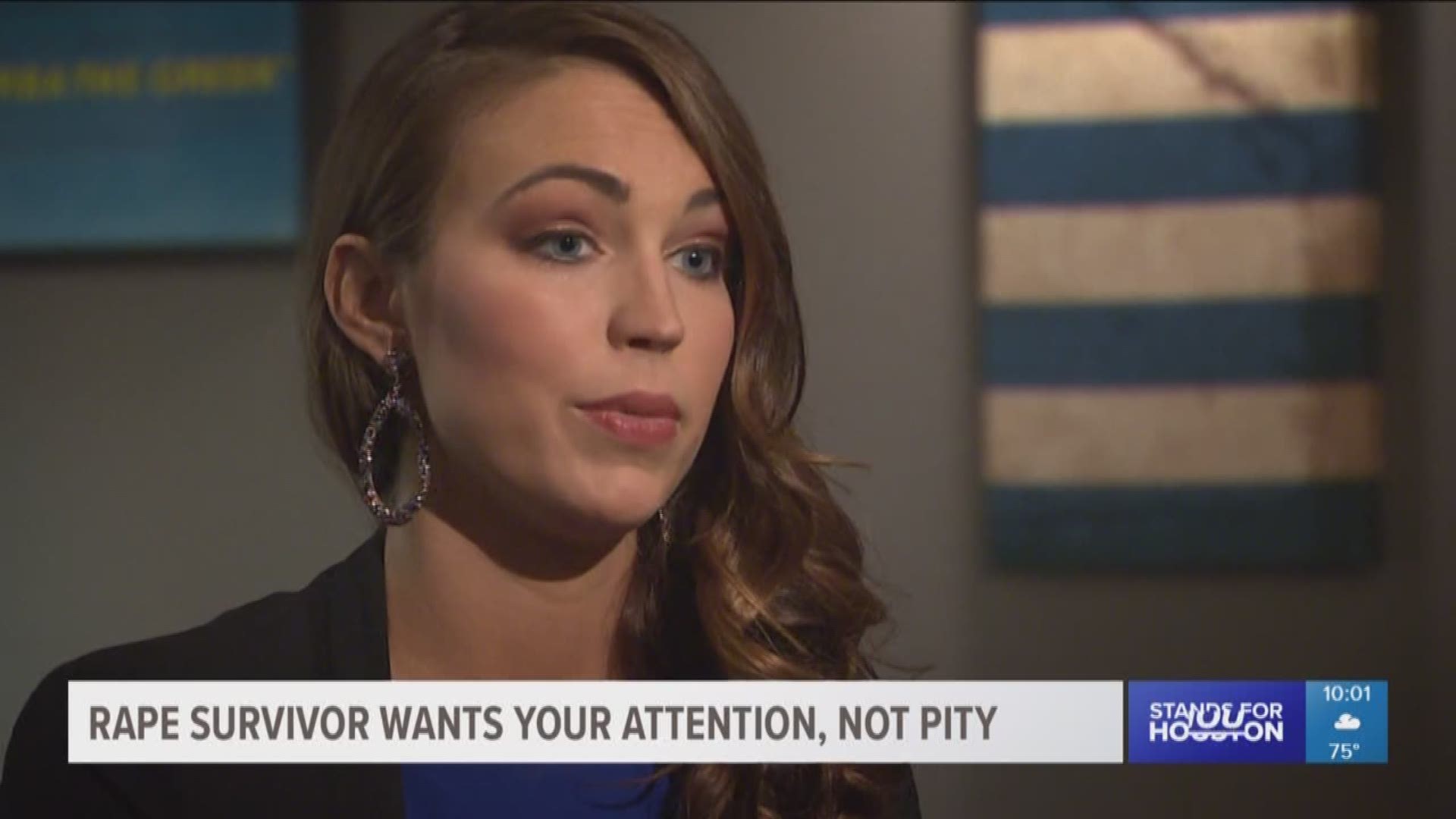HOUSTON — It was Aug. 5, 2010. Houston native Raquel Fatiuk was having drinks in a Los Angeles bar one moment, then says she woke up in a car being attacked the next.
“I couldn’t move my arms, and someone was on top of me, looking me in my eyes, strangling me and ripping my clothes off of me.”
The attacker dropped her off at Hollywood and Vine at 3 a.m. Fatiuk saw a police car across the street and ran to it. Fatiuk told officers she thought she had been drugged and did not recognize the man who raped her.
Her mother rushed from Houston to be by her side, but in the days and weeks that followed, Fatiuk said she wanted to put the night behind her and forget it ever happened.
“I got so detached from it in my mind that sometimes I wasn't sure that it did happen," Fatiuk said.
She wanted to forget because she had a promising future. She was studying to be an opera singer and was head to graduate school. But that August night continued to haunt her.
“I gained a lot of weight because I didn’t want people to look at me,” Fatiuk said. “I didn’t want people to see me as sexy, so I stopped taking care of myself.”
She didn’t go to therapy until four years after the rape and didn’t tell her dad what happened for six years.
“I don’t know. Maybe it’s like a dad-daughter thing. I knew he would blame himself for not protecting me, and it was my way of protecting him, I guess.”
Now eight years after that horrible night, Fatiuk has come full circle from shamed victim to outspoken advocate. It’s hard to miss her face on a Houston-area billboard wearing a tiara.
Her road to advocate started with therapy and beauty pageants. Fatiuk realized she could use pageants as a platform to speak out. As a volunteer for the Houston Area Women’s Center, she visits rape victims in emergency rooms.
“I really like to emphasize that it’s not their fault. I hear constantly from them, ‘I shouldn’t have done this, shouldn’t have worn that, drink that, shouldn’t have gone out with those people.’ That is not your fault,” she said.
The traumatized young woman who wanted to sweep that August night under a rug would be silent no more.
“I use my pain. It’s there. It’s never going to go away, but I’m using it as a purpose for me to keep going and be a voice for other survivors, despite something horrible happening to me.”

